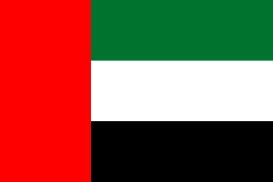
Author(s): Smart Dubai Department
Resource Type: Case studies
Countries: United Arab Emirates
SDG: GOAL 16. Peace and Justice Strong Institutions
Keywords: Open Data, Public Sector Innovation
Smart Dubai Data Initiative
Source in English: ESCWA-OECD Case Study - Smart Dubai Data Initiative, UAE
As part of the Smart Dubai Pulse, the innovative Dubai Data initiative was launched with the aim to competitively position Dubai as a global leading city in data and build a data economy. This initiative established clear and highly advanced governance frameworks to manage data as a strategic asset and build a city-wide data platform to manage open data with value-added services.
Implementation: 2015
Contributor(s)
The Smart Dubai Department launched the Dubai Data initiative in 2015 and mandated the Dubai Data Establishment (DDE) to oversee its implementation, in partnership and collaboration with the public and private sectors, civil society organizations and academia.
Purpose
The overall aim of the Smart Dubai initiative is to make Dubai a Centre of Excellence in Data and the smartest and happiest city on earth, through the use of advanced digital technologies.
Functions
The Dubai Data initiative embodied several sub-initiatives that can be summarized as follows:
- Instituting the Dubai Data Establishment and enacting a data law and policies that provide guidance on data classification, protection, sharing, use and reuse, and intellectual property rights protection.
- Establishing data standards that determine approaches and best practices to manage data in accordance with the data law.
- Developing the data curriculum which provides practical and customized training programmes on data skills for the benefit of government employees.
- Implementing the Dubai Pulse platform through a Public-Private Partnership approach, providing data and allowing all beneficiaries to securely generate value from data.
Clients
- The public and private sectors.
- Non-governmental organizations.
- Academic institutions, students and researchers.
- Developers, start-ups, entrepreneurs and business owners.
- Data processing institutions, and data consumers and producers.
- The public.
Outcome
- Producing one of the first city-wide data laws in the world, which included five targeted policies and 15 complementary standards.
- Providing approximately 500 open datasets, with nearly 2,000 more in the pipeline through the Dubai Pulse platform.
- Identifying a number of use cases of publicly and commercially available data, in areas including crowd management/people flow, career choices, business locations, and retail intelligence.
- Engaging the private sector to ensure advanced cross-sectoral data sharing, data commercialization and data science use.
- Ensuring advanced, adaptive data governance through the development of guidelines, self-assessment toolkits, and technology standards to support the safe, fair and ethical exchange of information and use of artificial intelligence.
Challenges
- Lack of data governance.
- Limited skills in data management, data science and technology expertise.
- The reluctance of the private sector to share private and commercial data, which necessitated building trust between sectors.